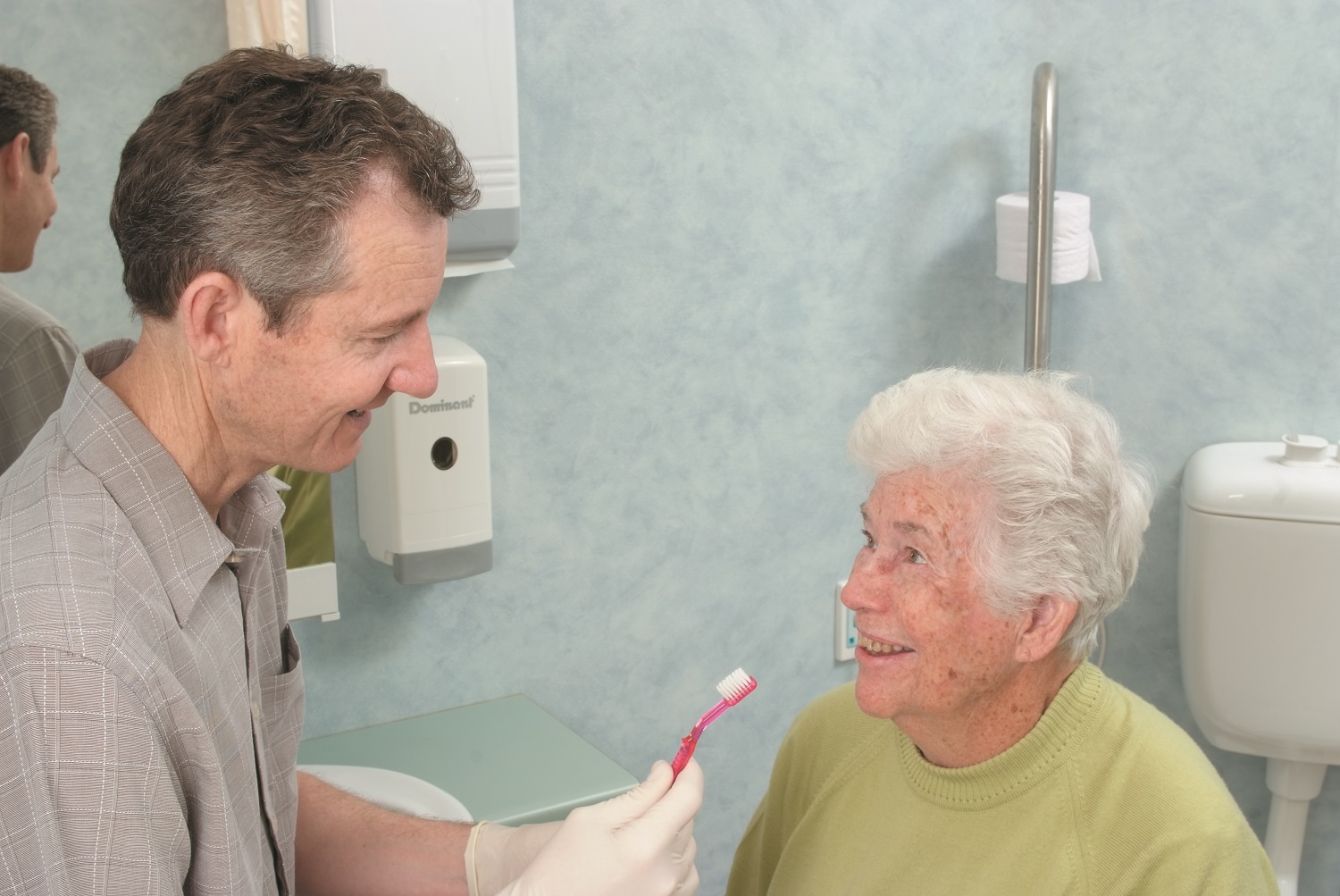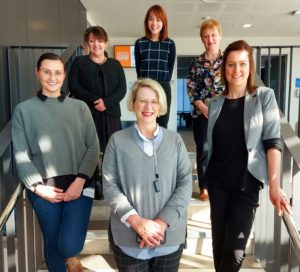
Researchers from the Flinders University Caring Futures Institute are aiming to improve oral healthcare for older people admitted to hospital.
A team of researchers from the Institute are collaborating with SA Dental Service, which is part of the Central Adelaide Health Network (CALHN), and the Southern Adelaide Local Health Network (SALHN) to improve oral healthcare for patients within the Geriatric Evaluation Management (GEM) Unit at the Noarlunga Hospital and Flinders Medical Centre.
GEM Units are set up in public hospitals across the state to provide specialised high-quality care to older people. They assess issues with patients and establish a rehabilitation program to minimise disability and the need to seek residential care.
Patients are often sent to a GEM Unit if they have fallen or have other medical issues that make it difficult to care for themselves.
The project, ‘REDUCE Missed oral health care: it takes a team’, is being co-led by Caring Futures Institute researcher and speech pathologist Dr Joanne Murray and Adjunct Research Fellow, Dr Adrienne Lewis from SA Dental Service, alongside fellow Institute researchers, Dr Tiffany Conroy and Dr Sarah Hunter.
SALHN’S quality improvement processes will be followed by first defining the problem and conducting a root cause analysis. Current oral healthcare practices and procedures will be audited to identify gaps in the delivery of evidence-based oral healthcare. Two staff on the GEM Unit, a nurse and speech pathologist, will be mentored by the research team to act as local facilitators.
Facilitation is the active ingredient in the Knowledge Translation framework ‘Integrated Promoting Action on Research Implementation in Health Services’ (i-PARIHS) being used by the researchers.
Caring Futures Institute researcher and speech pathologist Dr Joanne Murray says the facilitators will engage with their colleagues to co-design multi-disciplinary strategies to improve oral healthcare that are appropriate and sustainable for their context.

“The aim is to build the capacity of the local clinicians to create sustainable and scalable change that can then be transferred to the implementation of any other complex health intervention,” she says.
Oral health care is about more than seeing a dentist. When a person is unable to care for themselves, oral health can quickly deteriorate, with bacteria from the mouth causing infections in other parts of the body causing health problems such as pneumonia.
Speech pathologists deal with oral health in the context of dysphagia (swallowing problems) and good oral hygiene is one of the best ways to prevent complications of dysphagia such as pneumonia.
Dr Murray says oral health is one of the most frequently neglected aspects of care experienced by older people.
“Older people participating in hospital-based restorative or rehabilitation programs are at an elevated risk of poor oral health. This is because some chronic diseases such as diabetes can cause dry-mouth issues, but cognitive impairment, physical frailty and a reliance on others for personal care can play a part.”
“Poor oral health leads to poor general health and has been associated with serious medical complications that can lead to prolonged hospitalisation and even premature death.”
While poor oral health can cause serious medical issues, it is preventable and manageable through evidence-based oral healthcare and timely dental referral.
The question is why is oral health care so frequently missed in our hospitals?
Adjunct Research Fellow Dr Adrienne Lewis from SA Dental Service was called as an expert witness at the Royal Commission into Aged Care Quality and Safety. She says that one way of reducing missed oral care in our hospitals is for oral health to be recognised as a multidisciplinary responsibility and for it to be seamlessly integrated into the comprehensive care expectations for all older people.
“It is time to put the mouth back into the body!” she says.
The research project, supported by a $20,000 grant from SA Dental Service, has been 12 months in the planning stage. It’s currently being rolled out and is expected to be completed in 18 months.
SA Dental Service Executive Director Mark Chilvers says “partnering with the Flinders University Caring Futures Institute and SALHN for this research means we are can continue to work towards supporting the South Australian Oral Health Plan 2019-2026, by promoting the integration of oral health into general health”.

